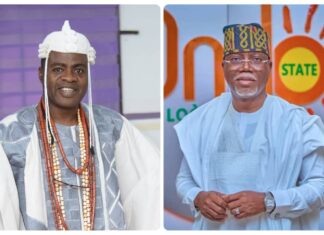I consider the controversies on the reform bills needless and distracting. Bad enough, even the presidency that owns the proposals, lacks appropriate communication strategies to market the agenda.
By Emeka Alex Duru
You may have noticed the various dimensions the tax reform proposal by President Bola Tinubu is assuming. It is gradually taking the pattern of a typical Nigerian public affair, featuring those flaunting their support for the president and those perceived to be against him. Politicians on both sides are regaining their voices and posturing as defenders of the people, 19 months into an administration that has left Nigerians without much to advertise except hunger and miseries.
So far, whatever the government has touted as the potential gains of the bills are being drowned in controversies and rootless ego. That is one takeaway of the reform debate. Let us do a recap of the reform propositions and matters arising.
President Tinubu, had on September 3, 2024, transmitted four tax reform bills to the National Assembly for consideration following the recommendations of the Taiwo Oyedele-led Presidential Committee on Fiscal and Tax Reforms.
The bills include the Nigeria Tax Bill 2024, which aims to provide the fiscal framework for taxation in the country, and the Tax Administration Bill, which seeks to provide a clear and concise legal framework for all taxes in the country and reduce disputes.
Others are the Nigeria Revenue Service Establishment Bill, expected to repeal the Federal Inland Revenue Service Act and establish the Nigeria Revenue Service as well as the Joint Revenue Board Establishment Bill, which will create a tax tribunal and a tax ombudsman.
READ ALSO:
Abati, Igbo-phobia and clumsy path to national prominence
On October 29, 2024, the Northern Governors Forum, an umbrella body of the 19 governors of the region, kicked against the bill, particularly the Value Added Tax-sharing template. In one voice, the governors directed federal lawmakers from the zone to vote against the bills in both chambers of the National Assembly.
Two days later, the National Economic Council presided by Vice President Kashim Shettima advised the Federal Government to withdraw the bills to create room for broader consultations among critical stakeholders. Tinubu turned down the advice.
In response, politicians from the North, including Borno State Governor, Babagana Zulum, insisted that the bills would further hurt the economic development of the region. “We condemn these bills sent to the National Assembly. They will drag the North backwards and also affect the South East, South West, and some South-Western states like Oyo, Osun, Ekiti, and Ondo”, the governor was quoted to have said in a British Broadcasting Corporation (BBC) interview.
24 federal lawmakers from Kano State also rejected the bills, as well as former Sokoto state governor, Senator Aminu Tambuwal. Some other lawmakers, largely from the south supported the bill. But faced with stiff opposition especially from the North, the House of Representatives suspended indefinitely the debate on the bills earlier fixed for Tuesday, December 3, even when it had passed second reding in the Senate.
On its own, the presidency keeps assuring that proposed reforms will not impoverish any state or region of the country, nor will they lead to the scrapping or weakening of any federal agencies but will bring relief to tens of millions of hardworking Nigerians across the country and empower the States and Local Governments for sustainable growth and development.
Now, I will confess not being an expert on tax matters. But I consider the controversies on the reform bills needless and distracting. Bad enough, even the presidency that owns the proposals, lacks appropriate communication strategies to market the agenda. Bayo Onanuga, Tinubu’s spokesman, in trying to have his say and way on the issue at the same time, has turned it to a matter of insult and aspersion on those with contrary opinions. In the process, the meat of the argument is lost. Experts who would have intervened with superior logic, have stayed away for fear of being abused. Consequently, charlatans and sycophants have taken over, chorusing sentiments they target as pleasing to Tinubu and not what he should hear.
But as leading political economist, Prof Pat Utomi, observed in his insightful piece in TheNiche on November 24, 2024, titled “Much ado about tax reforms”, ‘there are more consequential matters for a developmental state disposition from the bill that we seem to be losing in Nigeria as we focus on who gets more of revenues from taxes’. Another critical observation he made is that what we are taxing is direct and indirect rent from oil. There is equally the question on whether tax revenues improve the wellbeing of society.
Utomi wrote; “Revenues in unreformed Nigeria with state capture at the fore and cost of governance in the stratosphere do not have a developmental consequence. They instead deepen corruption and desperation for political power, all adding up to disaffection with the state and more violence, banditry, kidnappings and insurgences.
“I think we should begin to focus more on retreating production. How do taxes stimulate production? The supply side needs to be king. And citizen control of politicians and their impunity of conduct need to follow closely. We should also move past this zero-sum game in which anything that seems to benefit one group is seen as loss by another”.
These should be the considerations driving the debates. Nigerians are not skeptical of the tax reforms because they lack knowledge of the role of taxes in oiling the machinery of governance all over the world. They are rather not convinced of the real intentions of their leaders. This inherent trust deficit has made the citizens doubtful of government’s proposals as in this case. The saying, after all, is once bitten, twice shy. On the inauguration of the current administration on May 29, 2023, Tinubu had with swagger, declared the era of subsidy on petroleum products, gone, assuring that things would be better for Nigerians, henceforth. However, 19 months later, the people have sunk deeper in poverty and hardship.
In July, the federal government had pledged a 150-day duty-free window to allow the importation of maize, husked brown rice and wheat, as part of measures to combat rising food insecurity and inflation across the country. Five months after, the policy implementation is yet to commence. A bag of rice still sells at over N100,000. Prices of other food items have also been on the rise. That is not leadership. Leadership is about carrying the people along and winning their trust.
I was in my last years in secondary school in Imo state in 1981 under Governor Sam Mbakwe, when, faced with acute transportation and social infrastructure, the government, asked the citizens to make donations for building an airport and first-class university. The people – workers, artisans, students, market women and others complied, because they trusted the governor. Mbakwe did not fail in executing the projects and rendering accounts of the money collected and spent.
Instances of such transparent engagements with the people by Premiers of the defunct Eastern Region (M.I Okpara), the North (Ahmadu Bello), West (Obafemi Awolowo) and Mid-West (Dennis Osadebay), resonate years after. Sadly, that culture of trust borne of sincerity on the part of the leaders, is no longer there at the state and federal levels.
So, when the people demand explanations on the essence and intentions of the Tinubu tax reforms, they are in order. They are being careful of a leadership class that has serially raped and duped them.















